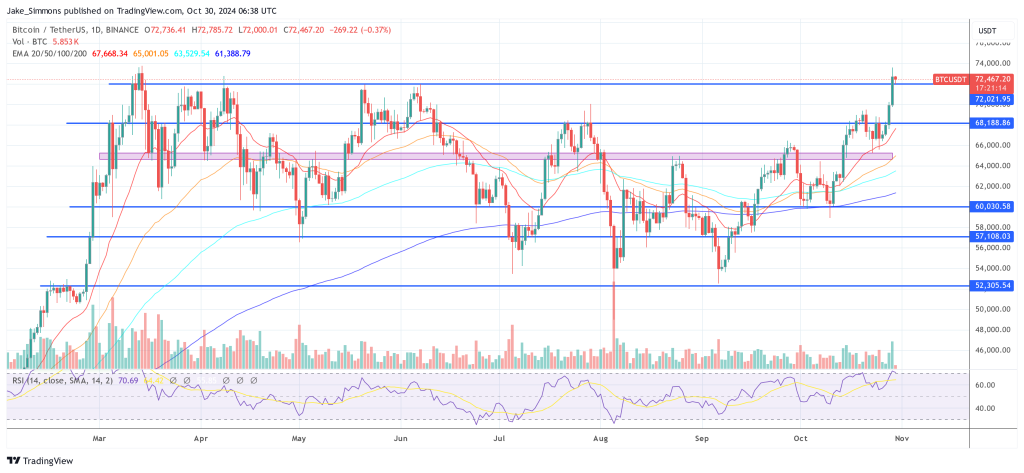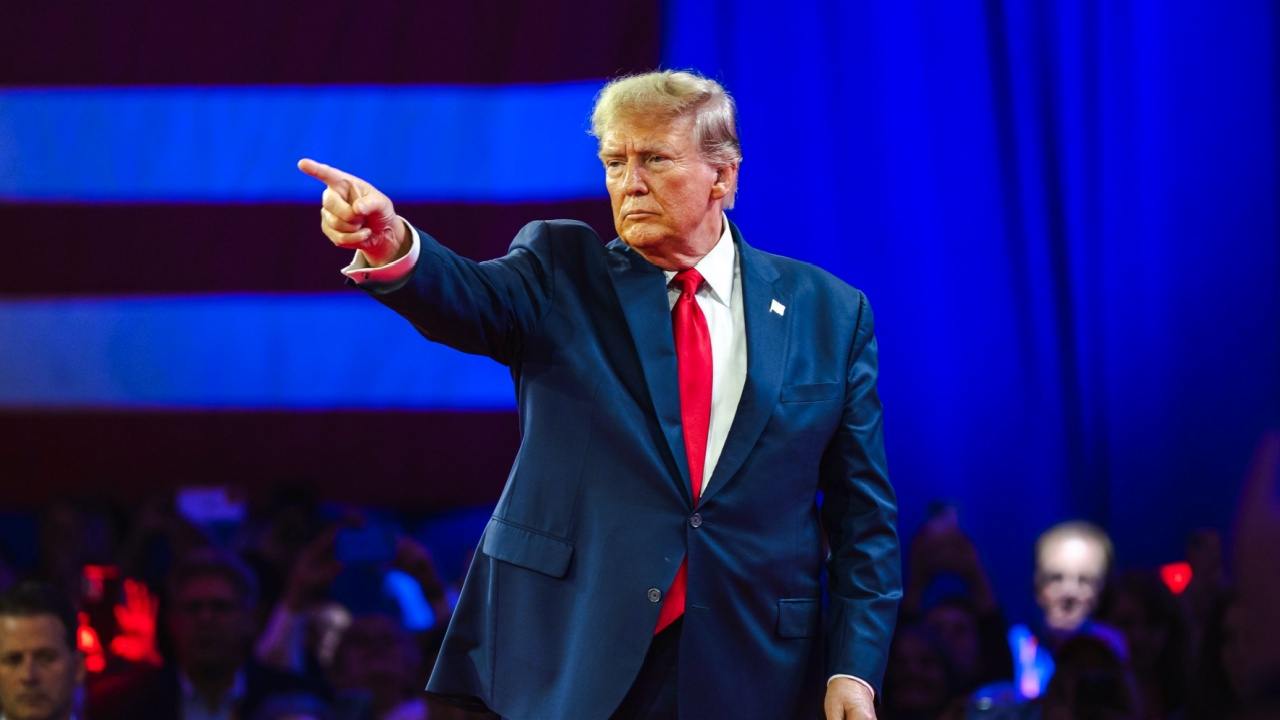Bitcoin As A Strategic Reserve: Florida’s CFO Proposes To Follow Trump’s Lead
Florida’s Chief Financial Officer, Jimmy Patronis, has formally requested that the state’s pension fund managers explore the feasibility of investing in Bitcoin, positioning the state to potentially adopt BTC as a strategic reserve asset. In a letter dated October 29, 2024, addressed to Chris Spencer, Executive Director of the Florida State Board of Administration (SBA), […]

Florida’s Chief Financial Officer, Jimmy Patronis, has formally requested that the state’s pension fund managers explore the feasibility of investing in Bitcoin, positioning the state to potentially adopt BTC as a strategic reserve asset. In a letter dated October 29, 2024, addressed to Chris Spencer, Executive Director of the Florida State Board of Administration (SBA), Patronis outlines his vision for integrating Bitcoin into the state’s investment portfolio.
Patronis’s proposal comes on the heels of former President Donald Trump’s recent speech at the Bitcoin 2024 conference, where Trump advocated for the United States to establish a national stockpile of Bitcoin. “This comes as the Communist Party of China makes inroads every day into the crypto world to grab control over this emerging currency,” Patronis notes, referencing geopolitical motivations for embracing Bitcoin.
He further highlights Trump’s visionary lead. “Trump said he would establish a crypto presidential advisory council and create a national “stockpile” of Bitcoin using cryptocurrency the US government currently holds, mostly seized in law enforcement actions. I believe this forethought and innovative thinking from a successful businessman like President Trump must not be taken for granted,” Patronis writes.
Will Florida Adopt Bitcoin As Strategic Reserve Asset?
Florida’s CFO emphasizes that Florida’s robust economic standing—boasting a Triple-A bond rating for the fifth consecutive year and record reserves—positions it well to pioneer innovative investment strategies. “If Florida were its own sovereign nation, it would be the 16th largest economy globally,” Patronis states.
Patronis also points to actions taken by other states as precedents. “Two other states, Wisconsin and Michigan, have seen it wise to invest a small portion of their pension funds into cryptocurrency,” he wrote. Additionally, he mentioned Arizona’s legislative efforts to include Bitcoin in state retirement funds and highlighted Wyoming and Nebraska as leaders in BTC mining and legislative frameworks designed to attract the industry, including provisions for chartering crypto banks.
Governor Ron DeSantis’s recent legislation to combat Central Bank Digital Currencies (CBDCs) is cited as a protective measure for Floridians’ personal finances against “government overreach and woke corporate monitoring.” Patronis aligned this stance with the decentralized nature of Bitcoin, stating that “on its face, [Bitcoin] is the antithesis of a central currency, providing decentralized digital currencies managed on blockchain technology, not issued or controlled by any government agency.”
The core of Patronis’s argument centers on the potential financial benefits for Florida’s public servants. “When managing state pensions for firefighters, teachers, and police officers, it’s also essential to prioritize the bottom line and ensure the best return on investment for Floridians,” he asserts.
He proposes that Bitcoin, often referred to as “digital gold,” could “help diversify the state’s portfolio and provide a secure hedge against the volatility of other major asset classes.” He adds, “The State Board of Administration maintains a Florida Growth Fund that allows for more innovative and emerging investments, and a Digital Currency Investment Pilot Program could be a perfect fit, offering potential benefits we cannot afford to overlook.”
In his letter, Patronis requests a comprehensive report from the SBA on the “feasibility, risk, and potential benefits of directing a portion of state retirement system monies into digital asset classes.” He emphasizes the importance of this analysis in informing lawmakers ahead of the next legislative session. “There’s no telling what the future of [Bitcoin] will be, but it’s important that the State of Florida stays ahead of the curve when considering new investments and providing the best returns for Floridians,” he concludes.
At press time, BTC traded at $72,467.

What's Your Reaction?




















